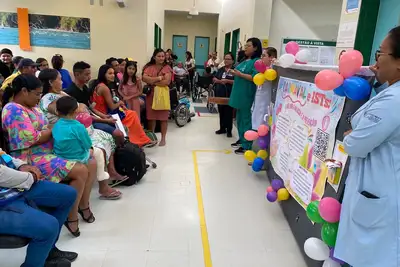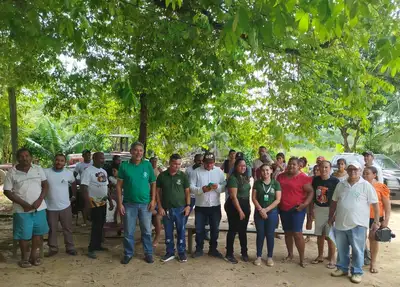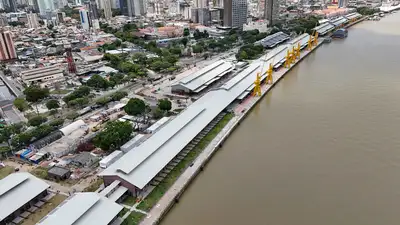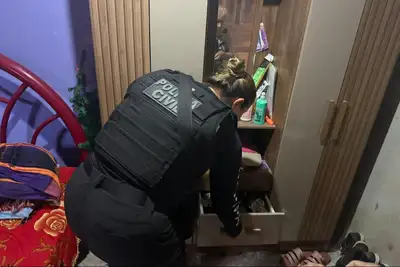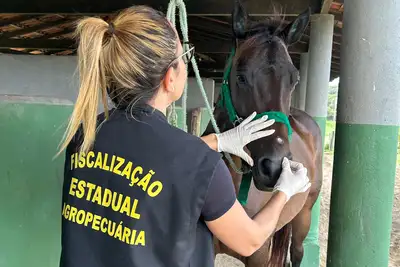Pará advocates for circular economy policies as a path to decarbonization and social inclusion
Circular economy and waste management consolidate as axes of climate transition

The Government of Pará, through the State Secretariat for the Environment, Climate and Sustainability (Semas), highlighted during three panels held this week at the Green Zone of COP30 in Belém, the State's commitment to the development of the circular economy as a strategic tool for a just transition and decarbonization.
On Tuesday (11), the panel "Decarbonization and circularity: The waste economy as a new agenda for the climate," held at the Pará Pavilion, emphasized the role of public management in building a sustainable model for resource utilization and emission reduction. On Wednesday (12), the topic returned to the debate in the panels "Circular economy and combating poverty: paths for a just transition" and "Public policies to strengthen sustainability and circularity in cooperatives in the State of Pará," which expanded the discussion by establishing the experiences of civil society and recycling cooperatives as central.
According to the Deputy Secretary of Environmental Management and Regularity of Semas (Sagra), Rodolpho Zahluth Bastos, Pará is advancing in the construction of a state circular economy policy, integrated with carbon mitigation goals and fair development. The initiatives are part of public policies that seek to empower cooperatives, generate income, and promote sustainability through public-private partnerships. The goal is to consolidate a new productive model based on innovation, social inclusion, and environmental responsibility, making cooperatives protagonists in the transition to a low-carbon economy and regional development.
"The circular economy needs to go beyond recycling or reverse logistics. We want to think about circularity from generation to disposal, with reuse, reduction, and new cycles of utilization. This debate is essential for us to design a model that makes sense for the reality of Pará," said Rodolpho, who highlighted the implementation of recycling and sustainable management structures, such as glass crushers and material reuse units, already in operation in municipalities like Salinópolis and Castanhal, with expansion planned for other regions of the Pará coast.
The deputy secretary emphasized that Semas has been expanding its role in solid waste management, connecting regulation, innovation, and environmental education actions, with the aim of involving all sectors of society.
According to him, the circular economy goes beyond waste management; it represents a new way of thinking about development, where resource utilization and innovation go hand in hand with income generation and social inclusion.
"In Pará, we are building a state circular economy policy based on social participation and strengthening sustainable production chains. The goal is for the State to become a reference in a low-carbon model that values territories and their local actors," he emphasized.
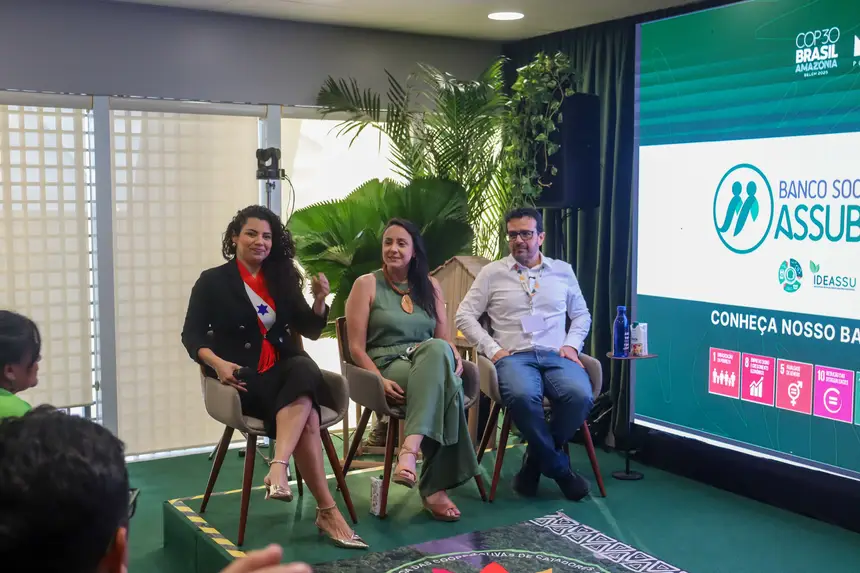
During Wednesday's panel, the president of Concaves (Cooperative of Recyclable Material Collectors), Débora Silva, reinforced the importance of including cooperatives in the State's circular economy policies.
"The participation of Concaves in COP is an opportunity to show that the circular economy needs to include those at the base: the collectors. They are an essential part of the recycling chain and need to be recognized as environmental agents and social entrepreneurs," she stated.
"Pará has an important role in this debate because it is building public policies aimed at valuing waste and promoting productive inclusion. Being in a global space like COP shows that the work of collectors is part of the climate solution," she concluded.
"COP is a strategic space to show that Pará is committed to a development model that combines living forests, innovation, and social justice," concluded Rodolpho Zahluth.
Text: Lucas Maciel and Jamille Leão/ Ascom Semas


